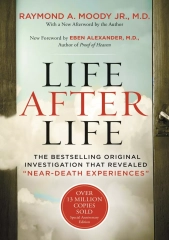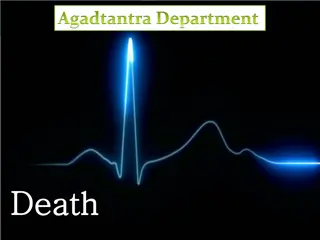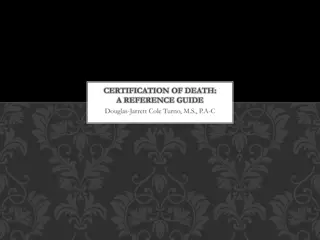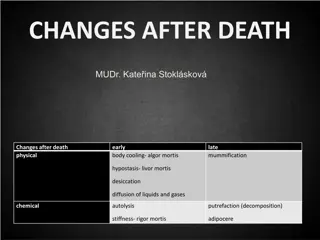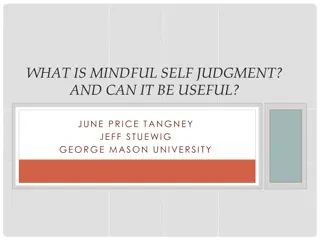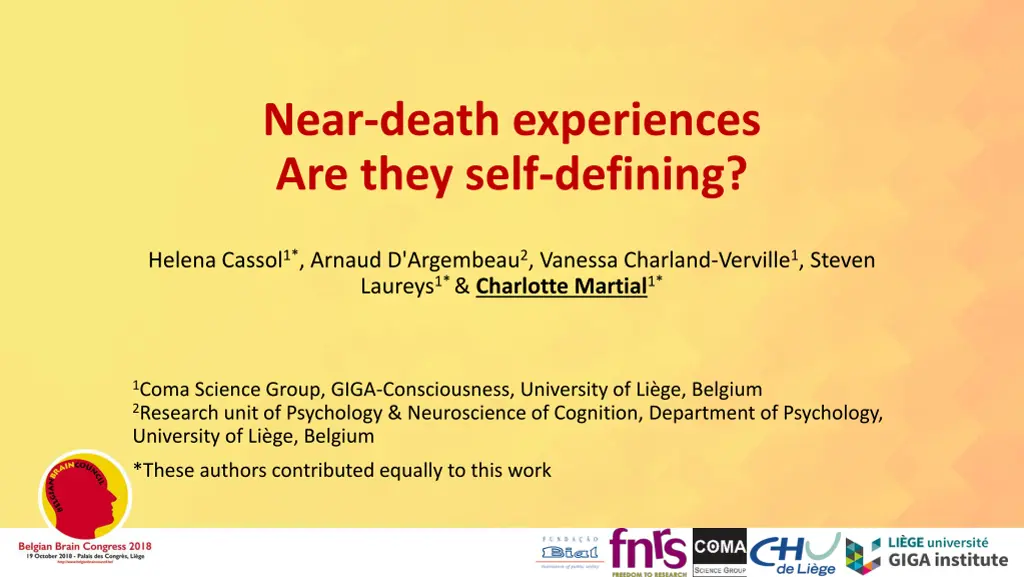
Exploring Near-Death Experiences: Self-Defining Memories and Identity
Delve into the intriguing realm of near-death experiences (NDEs) and their impact on individual identity through self-defining memories. This study investigates the phenomenological content and circumstances surrounding NDEs to understand their self-defining nature, shedding light on their profound psychological implications.
Download Presentation

Please find below an Image/Link to download the presentation.
The content on the website is provided AS IS for your information and personal use only. It may not be sold, licensed, or shared on other websites without obtaining consent from the author. If you encounter any issues during the download, it is possible that the publisher has removed the file from their server.
You are allowed to download the files provided on this website for personal or commercial use, subject to the condition that they are used lawfully. All files are the property of their respective owners.
The content on the website is provided AS IS for your information and personal use only. It may not be sold, licensed, or shared on other websites without obtaining consent from the author.
E N D
Presentation Transcript
Near-death experiences Are they self-defining? Helena Cassol1*, Arnaud D'Argembeau2, Vanessa Charland-Verville1, Steven Laureys1* & Charlotte Martial1* 1Coma Science Group, GIGA-Consciousness, University of Li ge, Belgium 2Research unit of Psychology & Neuroscience of Cognition, Department of Psychology, University of Li ge, Belgium *These authors contributed equally to this work
Introduction Near-death experiences (NDEs) Self-defining memories (SDMs) Building blocks of identity Sense of self-continuity Highly emotional/vivid memories Clear memory of an important and personally experienced event Profound psychological events Transcendental/mystical elements Impending death Highly emotional/self-related content Significant consequences on NDE experiencers lives Objectives Are NDEs self-defining? Is it due to phenomenological content or circumstances of appearance ? Blagov & Singer, 2004; Conway et al., 2004; Greyson, 2000; Noyes, 1980
Methods PARTICIPANTS 48 real NDE experiencers and 23 NDE experiencers-like (i.e., absence of life threat) Screened using Greyson NDE scale: identify an NDE (cut-off=7) and quantify its richness (scores from 0 to 32) TASK Step 1: RealNDEs vs. NDEs-like Describe 2 main SDMs Complete the Centrality of Event Scale (CES) for each SDM 20-item scale (scores from 0 to 100) assessing how central the event is to their identity Differences in the % of real NDE experiencers and NDEexperiencers-like recalling their NDE (Pearson s chi square test) Step 2: "NDE recalled" subgroup (no matter the context of occurrence) CES total scores: NDE memory vs. other SDM (Student s t-test) Associative strength between CES and Greyson NDE scale total scores (Spearman s correlation ) Berntsen & Rubin, 2006; Cassol et al., under review; Greyson, 1983
Results & Discussion (1) Real NDEs NDEs-like Recalled (n=30) Recalled (n=11) 38% 48% Not recalled (n=18) Not recalled (n=12) 52% 62% No difference in the proportion of NDE experiencers who recalled their NDE (p=0.24) The self-defining aspect of the experience could be explained by its phenomenological content rather than its context of occurrence
Results & Discussion (2) NDErecalled subgroup (n=41) rated the NDE memory as more central (89 11) to their identity as compared to the other SDM (71 19; p<0.001) Centrality of Event scale total scores Richness of the NDE memory (Greyson NDE scale scores) was positively associated to its centrality (CES scores; Fig. 1) TAKE HOME MESSAGE NDE memories = SDMs Crucial to NDErs personal identities Highlights importance for clinicians to facilitate their integration within the self Greyson NDE scale total scores Fig. 1. Association between CES total scores and Greyson NDE scale total scores within the NDE recalled subgroup (rs = 0.48, p=0.001). hcassol@uliege.be


